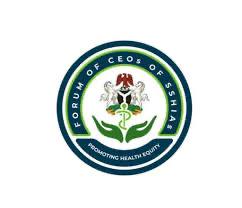A Lagos-based medical doctor, Dr. Rasheed Abassi, has stirred controversy nationwide following his controversial recommendation that men should engage in sexual activity at least 21 times a month to reduce the risk of prostate cancer. While he claims the frequency of ejaculation plays a preventive role, his suggestion that men unable to meet this figure with their wives should consider having side chicks has drawn widespread condemnation from both medical professionals and members of the public.
Dr. Abassi, who serves as the Chief Medical Director of Heritage Men’s Clinic, argued that frequent sexual activity—specifically ejaculation—can help lower the risk of prostate enlargement and cancer. In a widely circulated statement, he went as far as encouraging men to engage extra-marital partners if their spouses are unable or unwilling to meet the recommended number of sessions.
“I understand women want to safeguard their homes and finances, but men must also safeguard their health. If your wife cannot support you in meeting 21 times per month, you should get a side chick—on a contract basis—with clear boundaries. No drama, no disruption at home,” he said.
He even claimed that some women, in a bid to preserve their husbands’ health, ‘donate’ mistresses to them and that men in polygamous marriages tend to enjoy longer lives. His remarks, however, have ignited fierce debate, with many branding the comments as socially irresponsible and scientifically questionable.
A cross-section of Nigerians responded to the doctor’s remarks, with some men aligning with his theory while others strongly disagreed. A married man, Jerry Awele, 42, from Delta State, said the recommendation aligns with his personal experience. He admitted that he resorts to seeing a side chick due to his wife’s lower libido, insisting it helps him maintain balance without affecting his affection for his spouse.
“My wife is a good woman, but her libido is nothing like mine. When she’s tired or uninterested, I meet my side chick. It’s not about cheating—it’s about staying healthy,” he stated.
Conversely, 37-year-old Fidelix Ejim said his relationship with his wife is satisfying enough. “We don’t count how many times, but when we do it, it’s with quality. I don’t need another woman to meet any health target,” he explained.
For 50-year-old Rafiu Babatola, the daily pressures of modern life render the idea of such frequent intimacy unrealistic. “Life is not a scoreboard. Between stress, work and responsibilities, intimacy should be about love and mutual care, not ticking numbers,” he said.
Among women, the doctor’s advice has triggered outrage. Nkem Ndupu, a newlywed, condemned the suggestion, warning that such advice could endanger marriages and even incite domestic violence. “This kind of statement is dangerous. It’s how problems start—some people take it too far and do crazy things in the name of health,” she said.
Another respondent, Mrs. Blessing Okpara, described the suggestion as out of touch with the realities of adult life. “Expecting men in their 40s or 50s, who are juggling family and work stress, to perform that often is unrealistic. It puts unnecessary pressure on both partners,” she noted.
For many low-income earners, the idea of maintaining such a frequency is almost laughable. A bricklayer, David Iwunze, said his daily hustle has left him drained and uninterested in sex for months. “I’ve gone four months without touching my wife. That doctor should come and hustle with us before giving such advice,” he said.
Medical experts have also stepped in to provide clarity. Dr. Rufus Ojewola, a Consultant Urologist at Lagos University Teaching Hospital, confirmed that prostate cancer remains a leading health concern among Nigerian men, particularly those over 50 years old. However, he refrained from endorsing Dr. Abassi’s position, urging caution and evidence-based intervention.
In the international medical community, the jury is still out on the role of frequent ejaculation in preventing prostate cancer. Dr. Anne Calvaresi, Chair of the Prostate Health Committee at the Urology Care Foundation in Philadelphia, noted that while some studies point to a possible correlation between regular ejaculation and reduced prostate cancer risk, the evidence remains inconclusive.
“Frequent ejaculation might help flush out harmful substances in the prostate, but lifestyle, age, and genetic factors play a much bigger role. More research is needed,” she explained.
A notable study referenced in the National Library of Medicine found that men who ejaculated at least 21 times monthly had a 20 percent lower risk of prostate cancer. However, researchers warned that the correlation might also be linked to broader healthy habits among sexually active individuals.
UK-trained Urologist and expert in minimally invasive surgery, Professor Kingsley Ekwueme, completely dismissed the idea that sex alone could prevent prostate cancer. “No amount of sex can prevent prostate cancer. If that were true, we’d all become professional lovers. The main risk factors remain age, race, and family history. Sex can’t change your DNA,” he said.
Ekwueme further cautioned against relying on any singular dietary or lifestyle measure as a guarantee against prostate cancer, warning that even popular beliefs about ‘miracle foods’ like tomatoes or soursop lack solid scientific backing. “The only proven preventive measure is early screening and knowing your genetic risk. Everything else, including diet and lifestyle, can support—but not guarantee—health,” he added.
As debates continue to swirl around Dr. Abassi’s claims, medical authorities are urging Nigerians to prioritize scientifically validated approaches to healthcare, including regular check-ups, healthy living, and appropriate screening, rather than sensational claims lacking strong medical backing.







